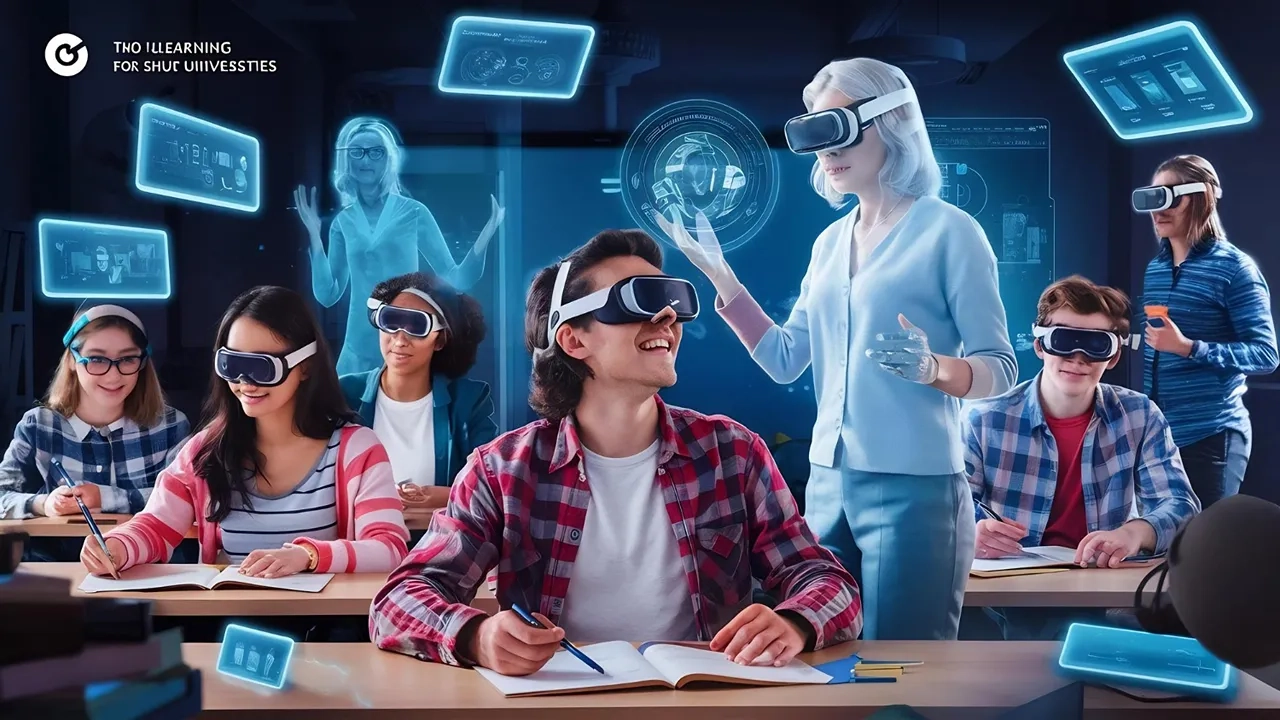In recent years, the field of education has undergone rapid transformations driven by technological and digital advances. From traditional classroom-based instruction to online learning, teaching methods are changing radically to meet the needs of a new digital generation. We are now entering what can be called the era of “Education 5.0,” a new stage in which the learning process is fundamentally reimagined through advanced technologies. This era is characterized by a focus on higher education (university level) and how technology—foremost among it artificial intelligence—can redefine the learning experience, paving the way for a true educational revolution in Türkiye and around the world.
The Concept of Education 5.0
The term Education 5.0 emerged to describe a new educational era that integrates advanced digital technologies to deliver a more interactive and human-centered education. This concept focuses on placing the learner at the center, emphasizing the development of personal and social skills alongside digital and technical competencies. Unlike earlier stages—where education relied on rote learning or even personalized learning via digital tools—Education 5.0 blends the power of technology with the necessity of cultivating skills such as collaboration, creativity, and critical thinking. The core of Education 5.0 is to provide a learning experience tailored to each student’s needs by leveraging modern technologies like artificial intelligence, virtual reality, and the Internet of Things, among others. It is a human-first approach in which technology becomes a means to empower both learner and teacher rather than an end in itself.
Technology and the Redefinition of Learning
Education 5.0 is not merely about using technology; it is about harnessing it to reshape traditional learning methods. Artificial intelligence, for example, can analyze student performance and adapt learning materials to each learner’s level and style, enabling truly personalized education. Technologies such as virtual reality (VR) and augmented reality (AR) provide immersive learning environments that allow students to interact more deeply with content, as if in a real-world experience. In addition, digital learning platforms and the Internet of Things help create smart classrooms that collect data and provide instant feedback on student progress. The result is a more interactive and engaging learning experience, where education goes beyond books and traditional classrooms to become a continuous and enjoyable journey. Through this thoughtful integration of technologies, temporal and spatial barriers to learning are broken, offering more students access to knowledge in ways that fit their individual needs. Crucially, the focus remains on serving the learner and developing skills—not on showcasing technology for its own sake.
Artificial Intelligence and Higher Education
Artificial intelligence (AI) is at the heart of today’s Education 5.0 revolution, especially in higher education. AI systems make it possible to create virtual teaching assistants that support students around the clock. These systems can answer student questions instantly, provide additional explanations, and even detect early signs of struggle by analyzing interactions during e-learning. In this way, AI can largely simulate the role of a private tutor, offering individualized guidance tailored to each student’s needs. AI is not only for learners; it also equips instructors with tools such as automated grading systems or analytics that assess class-wide performance and provide immediate reports on how well students are understanding the material.
You may also be interested in: Metaverse in Education: Are We Close to Virtual Classrooms in Türkiye?
University education thus becomes more flexible and responsive to learner needs. For example, AI-powered personalized learning can boost student engagement and reduce dropout rates by giving each learner a study plan that suits them, addresses weaknesses, and strengthens their capabilities. The outcome is a win–win: students enjoy a better learning experience and degree paths tailored to their needs and goals, while universities benefit from more engaged and persistent cohorts. It is worth noting that AI’s role complements the instructor rather than replacing them; the goal is for AI to take over routine and analytical tasks, freeing faculty to focus on deeper mentoring and pedagogical work.
Education 5.0 in Türkiye: AI and the Coming Educational Revolution
In Türkiye, signs of the coming educational shift are appearing as Education 5.0 technologies are gradually adopted in universities and higher-education institutions. The COVID-19 pandemic accelerated digital transformation in Turkish education, making online lectures and blended learning part of academic reality. Now, more advanced technologies—such as artificial intelligence—are entering the scene and driving a qualitative leap. For instance, 2024 saw a landmark step with the launch of the AI-powered teacher robot “Ada,” capable of assisting students with explanations and offering academic and career guidance. The emergence of “Ada” is practical evidence of AI’s enormous potential to enhance the learning experience—complementing, not replacing, human teachers.
Alongside “Ada,” AI-supported learning platforms developed by Turkish startups have emerged to deliver personalized learning, instant support for students, and reduced workload for instructors. These and other developments indicate that Türkiye’s higher-education system is preparing for a profound transformation in which learning becomes more flexible and accessible. University students in Türkiye will gain equitable, advanced learning opportunities through modern technologies—regardless of where they live or their circumstances—heralding a new era in which technological innovation and educational vision work together to unlock young people’s potential and prepare them for a digital future.
Conclusion
Education 5.0 signals a fundamental shift in the philosophy of learning and teaching by making the most of modern technologies without losing sight of education’s essence: human development. Thoughtful integration of AI and other technologies enables a more personalized and inclusive learning experience for higher-education students. In Türkiye, as elsewhere, the ability to keep pace with this evolution will be critical to ensuring that education systems meet the demands of the digital age. In short, Education 5.0 is not merely about using technology in classrooms; it is a new vision that places the learner at the center and opens pathways to a more innovative and human-centered educational future. Institutions, faculty, and policymakers should adopt this vision deliberately to ensure a successful educational transformation that benefits society as a whole and equips the next generation for tomorrow’s world.
Read also:
